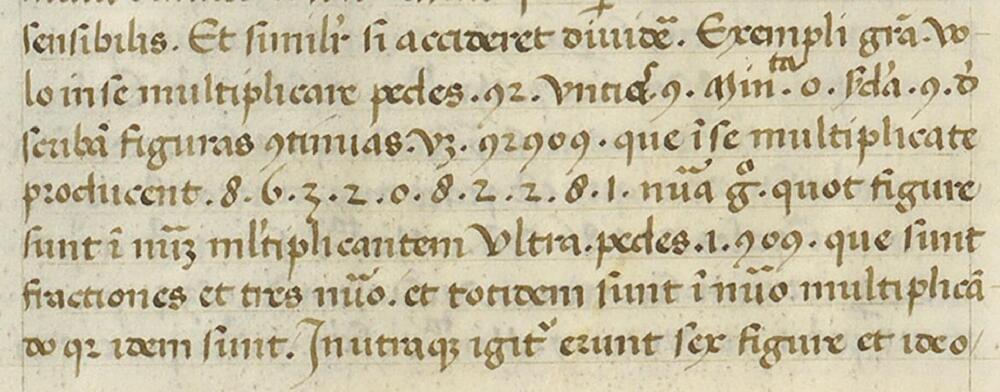A mathematical historian at Trinity Wester University in Canada, has found use of a decimal point by a Venetian merchant 150 years before its first known use by German mathematician Christopher Clavius. In his paper published in the journal Historia Mathematica, Glen Van Brummelen describes how he found the evidence of decimal use in a volume called “Tabulae,” and its significance to the history of mathematics.
The invention of the decimal point led to the development of the decimal system, and that in turn made it easier for people working in multiple fields to calculate non-whole numbers (fractions) as easily as whole numbers. Prior to this new discovery, the earliest known use of the decimal point was by Christopher Clavius as he was creating astronomical tables—the resulting work was published in 1593.
The new discovery was made in a part of a manuscript written by Giovanni Bianchini in the 1440s—Van Brummelen was discussing a section of trigonometric tables with a colleague when he noticed some of the numbers included a dot in the middle. One example was 10.4, which Bianchini then multiplied by 8 in the same way as is done with modern mathematics. The finding shows that a decimal point to represent non-whole numbers occurred approximately 150 years earlier than previously thought by math historians.










Comments are closed.